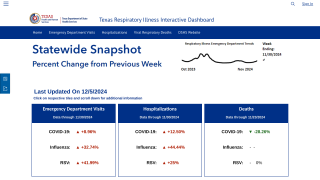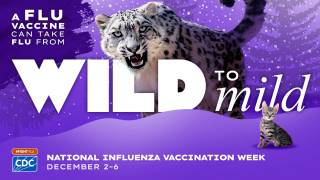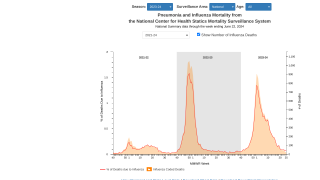Is There a Difference Between Flu Vaccines and Antiviral Drugs?

Influenza activity is rising in the U.S. at this time. The Centers of Disease and Control (CDC) report more than 143 million doses of seasonal influenza vaccine have been distributed in 2016.
Outpatient visits for influenza-like-illness throughout 2016 are above the normal rate. And, the flu activity for 2017 is expected to increase in the coming weeks.
Ten states (Alabama, Georgia, Louisiana, Missouri, New Jersey, New York, Oklahoma, Oregon, South Carolina, and Utah,) New York City, and Puerto Rico reported high influenza activity
Of more than 124,000 respiratory specimens recently tested, 96% were influenza A and 4% influenza B. The H3N2 strain has accounted 98% of the "A" strains reported.
The CDC recommends a yearly flu vaccine for everyone 6 months and older.
Additionally, the CDC also recommends treatment with influenza antiviral drugs for people who are very sick with the flu.
Should I still get a flu vaccine if I am sick with the flu? Yes. Antiviral drugs are not a substitute for getting a flu vaccine.
Antiviral drugs are a second line of defense to treat the flu (including seasonal flu and variant flu viruses) if you get sick. Studies show that flu antiviral drugs work best for treatment when they are started within 2 days of getting sick.
Antiviral drugs are prescription medicines (pills, liquid, an inhaled powder, or an intravenous solution) that fight against the flu in your body. Antiviral drugs are not sold over-the-counter. You can only get them if you have a prescription from your doctor or healthcare provider.
When used for treatment, antiviral drugs can lessen symptoms and shorten the time you are sick by 1 or 2 days.
They also can prevent serious flu complications, like pneumonia.
For people at high risk of serious flu complications, treatment with an antiviral drug can mean the difference between having milder illness instead of very serious illness that could result in a hospital stay.
Some side effects have been associated with the use of flu antiviral drugs, including nausea, vomiting, dizziness, runny or stuffy nose, cough, diarrhea, headache and some behavioral side effects.
There are three FDA-approved influenza antiviral drugs recommended by CDC this season to treat influenza:
- Oseltamivir (available as a generic version or under the trade name Tamiflu®),
- Zanamivir (trade name Relenza®),
- Peramivir (trade name Rapivab®).
The CDC publishes its price list at this webpage: https://goo.gl/HabgsX
The CDC says children can take two of the approved antiviral drugs—Oseltamivir and Zanamivir. Oseltamivir is recommended by the CDC and American Academy of Pediatrics (AAP) for the treatment of influenza in persons aged 2 weeks and older, and for the prevention of influenza in persons aged 3 months and older. Zanamivir is recommended for the treatment of influenza in persons aged 7 years and older, and for the prevention of influenza in persons aged 5 years and older. Peramivir is recommended for use in adults aged 18 and older.
Most people who are otherwise healthy, and get the flu, do not need to be treated with antiviral drugs.
Our Trust Standards: Medical Advisory Committee

























